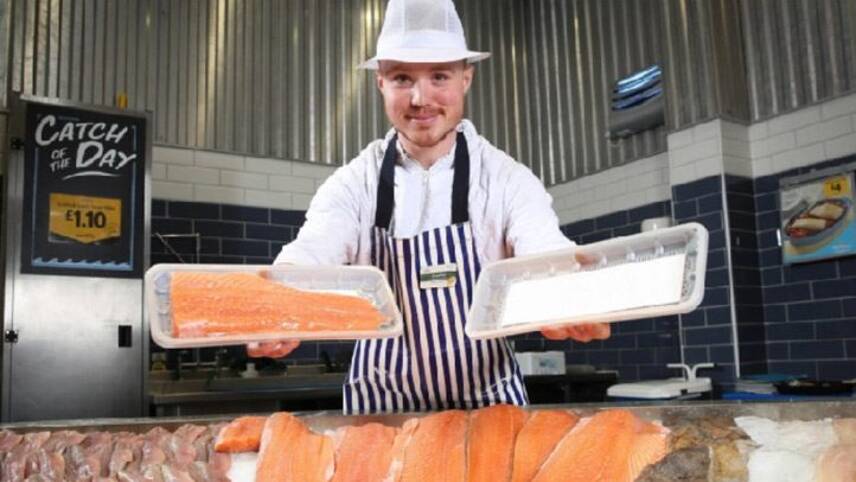Register for free and continue reading
Join our growing army of changemakers and get unlimited access to our premium content

The new packaging purports to be widely recyclable and to contain recycled content. Image: Morrisons
The retailer announced this week that it has completed the switch – the latest under its overarching commitment to ensure that 100% of the plastics packaging on its own-brand projects is recyclable by 2020.
Taking into account factors such as shelf life, Morrison’s has switched all black plastics with either clear or light-coloured plastic alternatives or plastic-free options, including paper-based and aluminium packaging. It claims that all of the new packaging lines are widely recyclable at kerbside, compared to black plastics, which can’t be detected in traditional recycling infrastructure due to their pigment.
The move comes at a time when the UK is estimated to send more than one million tonnes of black plastics to landfill every year – largely because most Material Recycling Facilities (MRF’s) view them as contaminants which are expensive to recycle.
Morrisons claims that the switch over will make 4,000 tonnes of plastic easier to recycle per year, with its black plastics replacements containing up to 85% recycled content.
But campaign group A Plastic Planet has criticised the supermarket’s ambitions, claiming that a switch to reusable or plastic-free alternatives would have been the more ambitious option.
“This announcement falls well short of the mark from what is needed,” A Plastic Planet’s co-founder Sian Sutherland said.
“Packaging which contains recycled plastic content will not solve the crisis as plastic cannot be recycled infinitely. Unusable after being recycled once or twice, plastic will always make its way into the environment unless incinerated.”
Elsewhere in its plastics strategy, however, Morrisons has been focusing on plastics reduction and removal.
The retailer has removed 9,000 tonnes of what it calls “unnecessary or problematic” plastics from its annual output since signing WRAP’s UK Plastics Pact. Key projects contributing to this project include the removal of plastics from certain fruit and vegetable lines in favour of loose offerings, a switch to paper produce bags and carrier bags and the removal of all polystyrene from own-brand food and drinks lines.
Sarah George


Please login or Register to leave a comment.